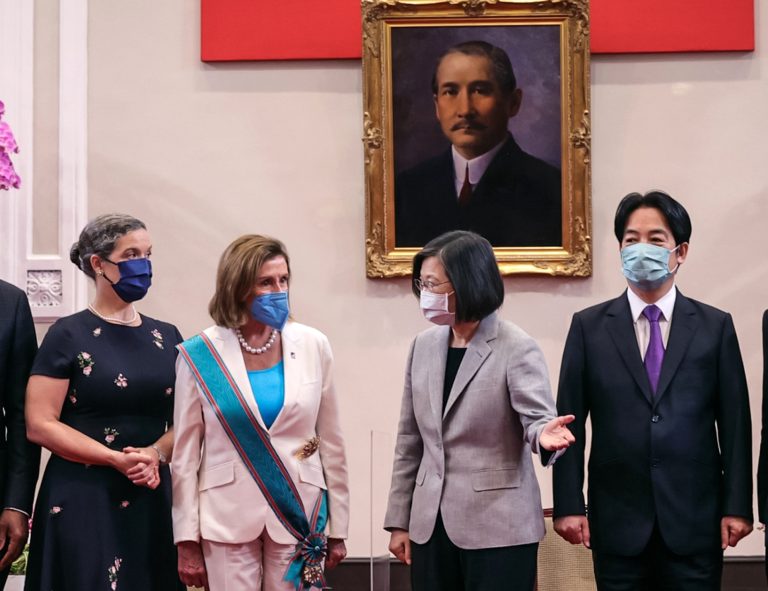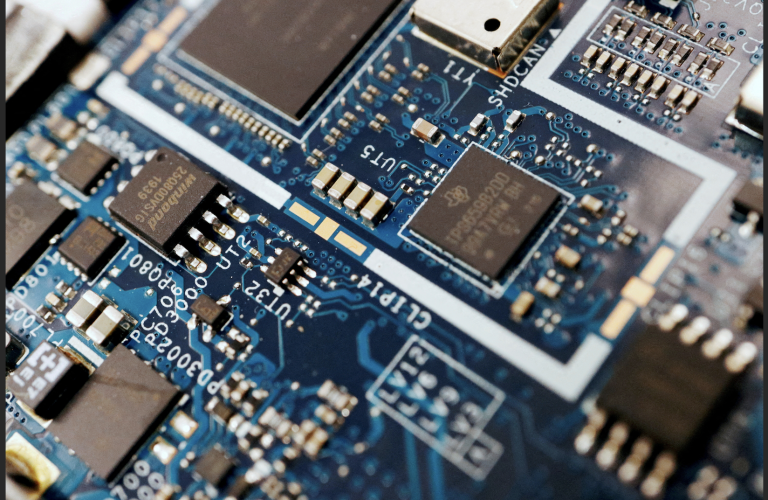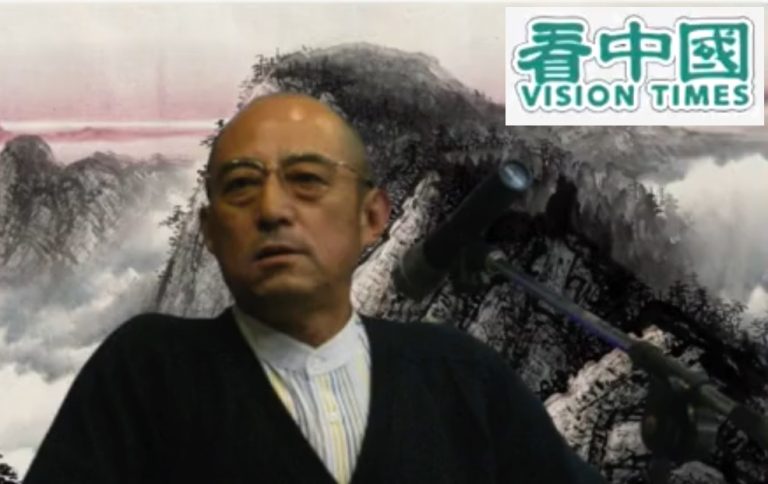News analysis
The People’s Republic of China (PRC) reacted angrily to the recent high-profile visit to Taiwan by U.S. House Speaker Nancy Pelosi, issuing warnings and launching a series of military exercises around the island that Beijing claims as its sovereign territory.
Mainland Chinese forces launched 11 ballistic missiles into the waters near Taiwan, five of which landed in Japan’s exclusive economic zone. Live-fire drills by the People’s Liberation Army (PLA) went on for days before concluding on Wednesday, Aug. 10, according to the PLA’s Eastern Theater Command.
During the unscheduled 19-hour trip, which ran from late Aug. 2 to Aug. 3, Pelosi and her entourage met with Taiwan president Tsai Ing-wen, local legislators, and human rights activists. The 82-year-old congresswoman made statements of support for the island and its government, urging Washington and other countries to back Taipei against Communist China’s ambitions.
“In the face of the Chinese Communist Party’s (CCP) accelerating aggression, our congressional delegation’s visit should be seen as an unequivocal statement that America stands with Taiwan, our democratic partner, as it defends itself and its freedom,” Pelosi wrote in an Aug. 2 op-ed published in the Washington Post.
Success
You are now signed up for our newsletter
Success
Check your email to complete sign up
Her visit adds to the long list of troubles facing the CCP leadership under Xi Jinping. The senior Democrat’s high-profile outreach to Taipei notably comes as the CCP prepares to hold its 20th Party Congress, where Xi hopes to secure a norm-breaking third term as General Secretary.
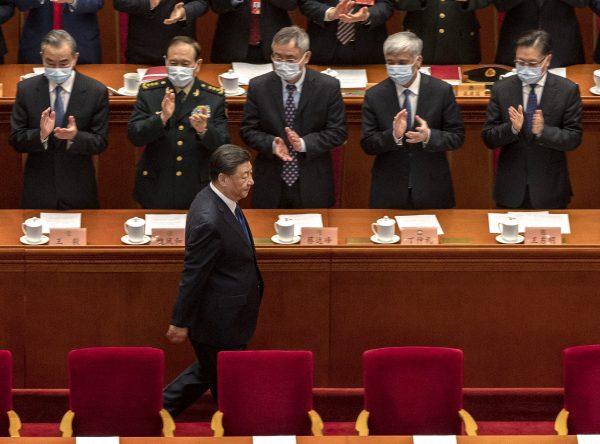
Pelosi’s crossing of the Party’s “red line” on Taiwan leaves Beijing with little room for flexibility in dealing with the U.S., in part given the Xi leadership’s heavy promotion of hawkish “great power diplomacy” and the “great rejuvenation of the Chinese nation.” Xi and the CCP must continue acting tough and become more bellicose to retain support at home, despite the consequences of escalating bilateral, regional, and even global tensions.
Conciliatory moves by Beijing to lessen tensions — even in the short term — risk a significant loss of face and political prestige for Xi at a time when domestic pressure over the CCP’s “zero-COVID” policy, bubbling crises in the property and banking sectors, and rapid economic deterioration all threaten the regime’s legitimacy.
‘Strong and resolute’
In recent years, the CCP has stepped up propaganda and bellicosity over Taiwan, with Xi Jinping having delivered multiple speeches and remarks commenting on the need to bring the island and its 24 million inhabitants into the fold. A new white paper released Aug. 10 a week after Pelosi’s visit repeats Beijing’s objectives for Taiwan under the CCP’s “one China principle.”
The CCP sees the “reunification” of Taiwan with the PRC as a key political aim. The island is officially governed as the Republic of China (ROC), which retreated to Taiwan in 1949 after losing control of the mainland to communist forces in the Chinese civil war — a conflict that has technically never ended.
Starting in mid-July, when media outlets began reporting that Pelosi was planning a stop in Taiwan during her Asia tour, Beijing’s diplomats and state media warned the U.S. against allowing the visit to take place, promising “strong and resolute measures.” Former Global Times editor-in-chief Hu Xijin even floated the idea that People’s Liberation Army (PLA) jets should shoot down the Speaker’s plane if it traveled to Taiwan with fighter escorts.
Pelosi’s trip to Taiwan and the aggressive rhetoric of prominent propaganda workers like Hu Xijin received close attention from the Chinese public. A Weibo hashtag about Pelosi’s arrival on Aug. 2 drew nearly 1.3 billion views and the popular Chinese social media platform later briefly malfunctioned for many users.
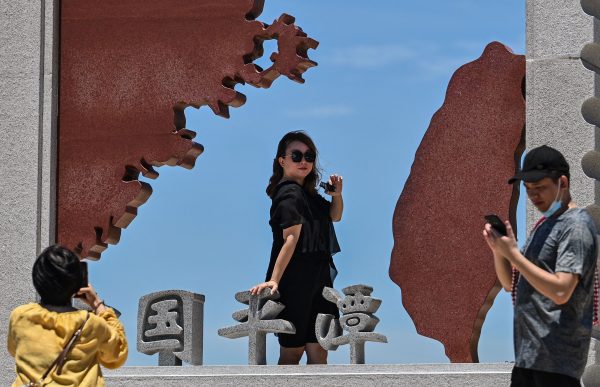
Videos of “little pinks” and other jingoistic hyper-nationalists sprouting expletives and engaging in various forms of performative self-abuse in anguish upon hearing that Pelosi’s plane had landed safely — instead of being shot down as Hu Xijin boasted it would — made the rounds on the Chinese internet.
In lieu of a direct confrontation, PLA military maneuvers and live-fire drills covered six regions around Taiwan. Numerous PLA jets and warships crossed the median line in the Taiwan Strait, and the Taiwan defense ministry reported the presence of unidentified aircraft — likely drones — in the skies over Kinmen island. The landing of Dongfeng ballistic missiles in the Japanese EEZ near Taiwan, as reported by Tokyo’s defense ministry, elicited mocking comparisons to North Korea.
Meanwhile, the PRC announced eight countermeasures against the United States over Pelosi’s trip, including canceling bilateral defense communications and the suspension of cooperation on transnational crimes, counternarcotics, and climate change. The PRC foreign ministry further imposed sanctions on Pelosi and her immediate family members for her “egregious provocation,” but did not offer details about the nature of the sanctions.
Gathering storm
The CCP’s response to Pelosi’s Taiwan trip has many observers concerned about rising tensions in the region.
“Around us, a storm is gathering. U.S.-China relations are worsening, with intractable issues, deep suspicions, and limited engagement,” said Singapore prime minister Lee Hsien Loong in a televised address ahead of the country’s national day on Aug. 9. He continued, “This is unlikely to improve anytime soon. Furthermore, miscalculations or mishaps can easily make things much worse.”
The worries of Singapore’s leader are not unfounded. Whatever her motives of traveling to Taiwan, Nancy Pelosi effectively crystallized the “new cold war” between the U.S. and the PRC by making the trip. Mainland propaganda outlets and commentators argue that Pelosi’s visit is extremely provocative because she is second in the line of succession to the U.S. presidency and her presence in Taipei is tantamount to backing “Taiwan independence.”
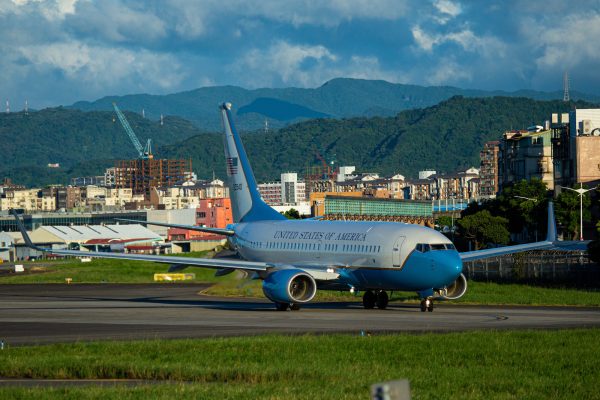
Despite Washington’s assurances that it does not support Taiwanese independence or officially recognize the ROC, and continues to follow the “One China policy,” the CCP is ideologically bound to trump up Pelosi’s recent Taiwan trip as “evidence” that the U.S. is bent on undermining China’s sovereignty.
Four decades of mostly friendly “engagement” notwithstanding, Communist China has long viewed America as its chief geopolitical rival and is actively working on displacing the latter as global hegemon. Beijing regards the U.S. as an incorrigibly “imperialist” power bent on carrying out regime change and bringing Western-style democracy to China.
The PRC’s continued saber-rattling and propaganda aimed at the U.S. over the past two years indicate that the Biden administration’s efforts to “compete” with China without tense ideological or military confrontation have done little to sway the Marxist-Leninist CCP from its convictions.
For the Party, engagement with any non-communist state ultimately serves the aim of either rebuilding the regime’s strength following a setback, or helping the Party expand its dominance to regions or countries not yet under its control. The CCP’s totalitarian roots and organization pit it directly against the U.S. and its system of constitutional government.
Further, the CCP will see as disingenuous the Biden administration’s suggestion that the White House cannot interfere in the legislative branch’s business and hence will not stop Pelosi from traveling to Taiwan. Despite the actual differences between the PRC and U.S. political systems, the CCP tends to consider the de facto operation of power in the U.S. as being similar to its one-party dictatorship.
With the “true intentions” of Washington finally “exposed” by Pelosi’s Taiwan visit, Beijing has little choice but to become more openly antagonistic towards the U.S. in both word and deed instead of pretending to go along with “engagement.”
Wolf warriors
With the “hostile” moves taken by Washington, failure on Beijing’s part to get tough on Taiwan and the U.S., or at least keep up the pretense of doing so, threatens to erode Xi Jinping’s quan wei (權威, a Chinese term referring to a leader’s political authority and prestige) within the Party.
More broadly, a disappointing response to the “Taiwan Question” — as termed in the CCP’s recent white paper — could alienate nationalistic Chinese citizens who support the CCP for making China the “great power” it boasts of in its propaganda. Loss of public confidence in the Party’s ability to deliver results, be it economic prosperity or national strength, would further weaken the regime’s legitimacy in the eyes of the public.
However, Beijing’s insistence on looking tough for public consumption will only exacerbate the negative backlash PRC officials have already received for their “wolf warrior”-style diplomacy. As the regime proceeds to “defend national sovereignty” in accordance with Communist Party culture, the PRC risks further rifts with the international community, including countries that might otherwise be willing to work with Beijing.
CCP officials are known for going to embarrassing — and often revealing — extremes in promoting policies as they strive to be more “politically correct” than their peers and hopefully shore up career security.
On Aug. 3, PRC ambassador to France Lu Shaye told French television channel BFMTV that the CCP will “re-educate” the Taiwanese people after “reunification” to restore their sense of “patriotism” to the regime. Lu’s comment shocked observers because it was akin to a public confession that the CCP would subject the island’s residents to brainwashing and other human rights abuses after a successful invasion in the same horrific way that it treats political dissidents and ethnic minority populations in the mainland.
Another example is PRC foreign ministry spokeswoman Hua Chunying’s attempt to justify the CCP’s “reunification” of Taiwan from the large presence of Chinese restaurants in Taipei. “Baidu Maps show that there are 38 Shandong dumpling restaurants and 67 Shanxi noodle restaurants in Taipei. Palates don’t cheat. Taiwan has always been a part of China. The long lost child will eventually return home,” she tweeted on Aug. 7. Hua’s tweet was roundly ridiculed by Chinese netizens for its shoddy logic.
Pressures on Xi
Xi Jinping is looking to take a norm-breaking third term and appoint trusted officials to key positions at the 20th Party Congress near the end of the year. To secure his political agenda this close to the Party Congress, Xi would prefer to keep things as stable as possible and maintain his present quan wei through propaganda. Unnecessary adventurism at home and abroad that could court trouble for himself and the regime would be avoided.
Nancy Pelosi’s Taiwan trip, however, has forced Xi to take added risks to preserve his “quan wei.” Stepping up military maneuvers around Taiwan may intimidate the Taiwanese populace and get other countries to think twice before taking a leaf out of Pelosi’s book in supporting the ROC. But those maneuvers will also impose a strain on the PRC’s dwindling finances, heighten conflict risks, and could achieve the opposite effect of what was intended. Already, legislators in the United Kingdom and Germany are planning to visit Taiwan later this year.
Strong international follow-up to Pelosi’s trip would heap pressure on Xi Jinping ahead of the 20th Party Congress and create fertile ground for internal contradictions in the Party elite to fester. Xi’s rivals have been goading him into taking Taiwan as soon as possible to prove his worthiness to lead the Party beyond two terms.
Xi has thus far resisted the temptation to invade Taiwan and has instead shut down dissenters. Overseas Chinese-language media reported in late 2021 that former People’s Liberation Army Air Force general Liu Yazhou was detained for questioning Xi’s ability to lead the CCP to victory in a “decisive battle” over Taiwan and requested “a change of commander-in-chief.”
On the flipside, weak or inconsistent responses to Beijing’s provocations in the Taiwan Strait on the part of the U.S. and its allies will give Xi breathing room to “spin tragedy into victory” for the communist regime and regain his political footing. For instance, the Biden administration’s postponing of a routine test launch of an Air Force Minuteman III intercontinental ballistic missile after Pelosi’s Taiwan trip to avoid heightening tensions with mainland China would be viewed by Beijing as a sign of weakness. The Xi leadership could also cite the delayed test as a sign that its pressure campaign against Taiwan is yielding results and further prop up its “the East is Rising, the West is in Decline” propaganda. More shows of weakness could embolden the PRC to undertake greater transgressions against Taiwan and in the surrounding region.
Larry Ong is a senior analyst with New York-based political risk consultancy SinoInsider. He was part of the SinoInsider team that forecasted the 19th Party Congress and 2018 Two Sessions personnel reshuffles with a high degree of accuracy.



